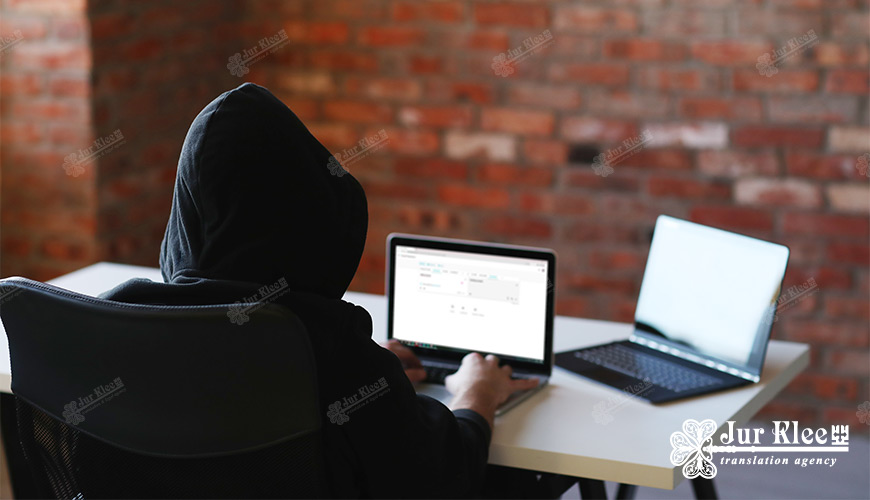
How to distinguish a real translator from a "fake" one?
Recently, more and more amateurs and simply non-certified specialists have been found on the market of translation services. To find a true translator with the appropriate education and professional competencies, it is necessary to determine what signs should be looked for in the candidates of translators.
It is no secret to anyone that Ukrainian legislation makes it quite easy to obtain the rights to provide services in the field of translation. To do this, you do not need to provide any diplomas of education, certificates of completion of retraining courses, or any other documentation confirming the qualifications of specialists. You just need to go to the Tax Office, register as an individual entrepreneur or create LLC (or any other form of business). The entrepreneur specifies the classifier of economic activity, while he is not required to provide documents on involvement in the field of translations.
The first problem that a client who has contacted unscrupulous translators may face is machine translation using the most common online application Google Translate. Now this tool is many times more intelligent and thoughtful system than five or seven years ago. However, its capabilities are still far from those that professional translators can offer.
Despite all the efforts of Google developers, translations of medical, engineering and other highly specialized texts written by native speakers of a foreign language are very difficult for machine translation. The result is not what the consumer expects – extremely poor quality, with inconsistent cases and distorted semantic constructions. It is likely that texts on general topics that do not contain specific terminology will be translated well enough for a general understanding of the content. However, such translations are still not suitable for posting them on the pages of websites on the Internet due to the inconsistency of words among themselves, incorrect grammatical constructions, etc.
For example, you can try to translate an excerpt of an English text using machine translation and a professional translator. At the same time, it should be remembered that the translation in the opposite direction is considered more difficult, since it requires reading by a native speaker to determine errors.
The original:
The job having been sandblasted, all scale was removed.
Translation via Google Translate (first option):
Работа была подвергнута пескоструйной обработке, все масштабы были удалены.
Translation via Google Translate (second option):
Работа, будучи пескоструйной обработкой, вся гамма была удалена.
Professional translation:
Когда деталь обработали пескоструйным аппаратом, то вся окалина была снята.

For almost anyone who knows computer at the level of a novice user, it will not be difficult to use the well-known application from Google. This makes it possible for fraudsters (and simply unscrupulous performers) to fulfill orders within a few minutes, of which the translation itself takes 3-5 seconds. In the future, the text is subjected to a small editing, the result is sent to the customer and they receive money for the "work".
As mentioned above, it is quite simple to check a low-quality translation on a highly specialized topic into the customer's native language. Neither experts in medicine, law or engineering, nor linguists are needed for this. Just look at the writing style. If you get the feeling that the text was written by a robot, then most likely the text was translated in Google Translate. Translation into a foreign language is another matter. It is almost impossible to check the quality if there are no verified translators or familiar native speakers with the required qualifications.
In order to understand in advance whether to contact a specific translator, or whether he is a fraudster to be wary of, you can perform a check before sending the order.
- Ask for documents that will be able to confirm the qualification of a specialist. You must be provided with the series and number of the document, passport data, according to which you can double-check the authenticity of the diploma or certificate on the website of the state structure.
- Request recommendations or letters of recommendation from other customers who have already encountered the work of this translator. If the translator himself offers to provide a portfolio, do not refuse this opportunity.
- Pay attention to the cost of services. Real professionals do not start a dialogue with the announcement of a fixed rate. The price is often discussed at the last moment. Too low prices should also alert the customer.
- Arrange to complete a small test task – for free or for a symbolic amount. To understand the qualifications of a specialist, it is enough to request a translation of several sentences of a specific text.
A more universal way is to contact a translation agency. All responsibility in this case falls on the management of the company, and not on the customer himself. In such companies, a rigorous selection of candidates is carried out, so you will not stumble upon a fraudster with a machine translation program.
Even if you don't like the translation, the probability of returning the funds in case of cooperation with the bureau is much higher. This should be remembered when deciding to order a translation from a freelancer.
